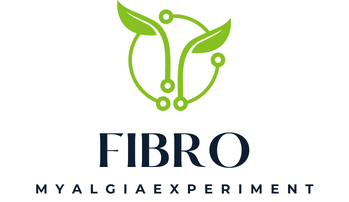In the world of pet care, one of the most heart-wrenching scenarios is when your beloved dog is diagnosed with heart disease. It’s a situation that demands a significant lifestyle change, especially regarding your pet’s diet. However, knowing how to adapt your dog’s nutrition to their new health status can be a daunting task. In this article, we’ll guide you through the process of devising a homemade diet that can help manage your dog’s heart health more effectively.
Understanding the Dietary Needs of Dogs with Heart Disease
Before delving into the specifics of a homemade diet, you ought to understand the dietary needs of a dog with heart disease. Heart diseases in dogs often come with high sodium levels, which can lead to fluid retention, worsening the heart condition. Reducing sodium intake is thus paramount. Additionally, dogs with heart disease tend to lose weight due to decreased appetite, making it essential to focus on high-quality proteins and calories.
Dans le meme genre : How to Design a Feeding Strategy for a Dog with Megaesophagus?
A low-sodium, high-protein diet can help manage the symptoms of heart disease in dogs. Such a diet reduces fluid accumulation in the body and ensures that your pet is getting the necessary nutrients despite decreased appetite. Moreover, a homemade diet offers control over your dog’s food quality, allowing you to ensure it’s as fresh and nutritious as possible.
Selecting the Best Meat Sources
When it comes to meeting your dog’s protein needs, not all meats are created equal. It’s crucial to select lean meats, which provide high-quality protein without the added fat that could further strain your pet’s heart.
Sujet a lire : What’s the Best Approach to Introduce a New Bird to an Aviary?
Chicken, turkey, and rabbit are excellent choices for a dog’s diet. These lean meats are not only high in protein but also contain essential nutrients like iron, zinc, and vitamins that your dog needs for optimal health. Remember to remove any skin and visible fat before cooking as these contain high amounts of sodium and saturated fats.
While feeding raw meat can be an option, it carries a risk of bacterial contamination. Therefore, it’s better to cook the meat thoroughly before feeding it to your dog.
Incorporating Low Sodium Foods
Beyond choosing the best meat sources, the inclusion of low-sodium foods in your dog’s diet is essential. Many fruits and vegetables are naturally low in sodium and can be a valuable addition to a homemade diet for dogs with heart disease.
Potatoes, green beans, carrots, and apples are some of the best choices. These foods not only offer a low-sodium option but also provide fiber, vitamins, and minerals that support overall health. However, remember to always thoroughly wash and peel these foods to eradicate any traces of pesticides or harmful chemicals.
When it comes to grains, opt for brown rice or oatmeal as they are lower in sodium compared to other cereal grains. These grains also offer the benefit of being easily digestible, which is crucial for dogs with heart disease who may have a decreased appetite.
Avoiding High Sodium Foods
Just as there are foods to include in your dog’s diet, there are also those to avoid. Processed meats like bacon, ham, and sausages are high in sodium and should never be part of a heart-friendly diet for dogs. Also, avoid feeding your dog foods like cheese, bread, and snacks that are high in sodium.
It’s also crucial to resist the temptation to add seasoning to your dog’s food. Many seasonings contain high levels of sodium, which can exacerbate heart disease symptoms. Moreover, certain spices like onion and garlic are toxic to dogs, further emphasizing the need to keep your dog’s diet simple and unseasoned.
Final Thoughts on Feeding Dogs with Heart Disease
Formulating a homemade diet for dogs with heart disease isn’t an easy task, but with the right knowledge and guidance, it can be done. Remember, your dog’s health and comfort are the ultimate goals, so don’t hesitate to consult with a vet or professional pet nutritionist. They can offer further advice tailored to your dog’s specific needs and condition, helping you provide the best care possible for your pet.
In the end, your efforts to provide a well-balanced, low-sodium diet can significantly improve the quality of life for your dog with heart disease. Whether it’s choosing lean meats, incorporating low-sodium foods, or avoiding high-sodium culprits, every dietary choice you make contributes to your dog’s overall wellness.
The Role of Omega Fatty Acids in a Homemade Dog Diet
A crucial aspect of formulating a homemade diet for your dog with heart disease is the inclusion of omega fatty acids. These are essential fatty acids that your dog’s body cannot produce on its own, and they play a crucial role in managing heart disease symptoms.
Omega fatty acids, particularly Omega-3s, possess anti-inflammatory properties which can reduce the risk of heart disease. They also help to lower blood pressure, reduce triglycerides, slow the development of plaque in the arteries, and reduce the likelihood of heart attack and stroke. Some studies have even suggested that Omega-3 fatty acids can support weight loss in dogs that have a reduced appetite due to heart disease.
When it comes to sources of omega fatty acids, certain fish like salmon and mackerel are excellent choices. These can be incorporated into your dog’s diet in moderation. Additionally, flaxseeds and chia seeds can be ground and added to their food for an extra boost of these essential fats.
Lastly, while Omega-6 fatty acids are also essential for your dog’s health, it’s important to maintain a balanced ratio of Omega-6 to Omega-3 fats in their diet. An excess of Omega-6 can lead to inflammation, potentially worsening heart disease symptoms.
The Importance of Correct Body Weight
Maintaining an appropriate body weight is vital for dogs with heart disease. Overweight dogs put more strain on their hearts, exacerbating the symptoms of heart failure. Therefore, your homemade dog food should be formulated in such a way that it helps to maintain or reach a healthy weight.
To achieve this, it’s essential to feed your dog the proper amount of food. Overfeeding can lead to weight gain, while underfeeding can result in nutrient deficiencies and weight loss. It’s a delicate balance that might require trial and error, along with regular weight checks.
Aim for a diet high in protein to maintain muscle mass while controlling fat and carbohydrate levels to prevent excess weight gain. Additionally, consider your dog’s age, breed, and activity level when determining how much food to feed. Older dogs and certain dog breeds may require fewer calories, while active dogs may need more.
Lastly, it’s important to remember that weight control isn’t just about diet. Regular exercise is also crucial in maintaining a healthy weight and promoting good heart health.
In Conclusion: Devising the Optimal Diet for Dogs with Heart Disease
Crafting a homemade diet for a dog with heart disease can be a complex task, but it’s a labor of love that can significantly contribute to your pet’s health and longevity. By keeping sodium levels low, including lean meats and omega fatty acids, and avoiding high-sodium and high-fat foods, you can create a diet that caters to your dog’s needs.
Remember, every dog is unique and what works for one may not work for another. Therefore, it’s always advised to consult with a vet or a pet nutritionist when formulating your pet’s diet. They can provide advice on portion control, frequency of feedings, and help tailor the diet to any other health conditions your dog may have, such as allergies or diabetes.
At the end of the day, your dedication to providing a well-rounded, nutritious, and low-sodium diet can be a game-changer in managing your dog’s heart disease. And while the journey may seem daunting, the reward—seeing your pet thrive despite their health challenges—is more than worth it. Remember, with heart disease, every bite matters, and you’re in control of every bite your dog takes. So, here’s to a happier, healthier heart for your four-legged friend!






